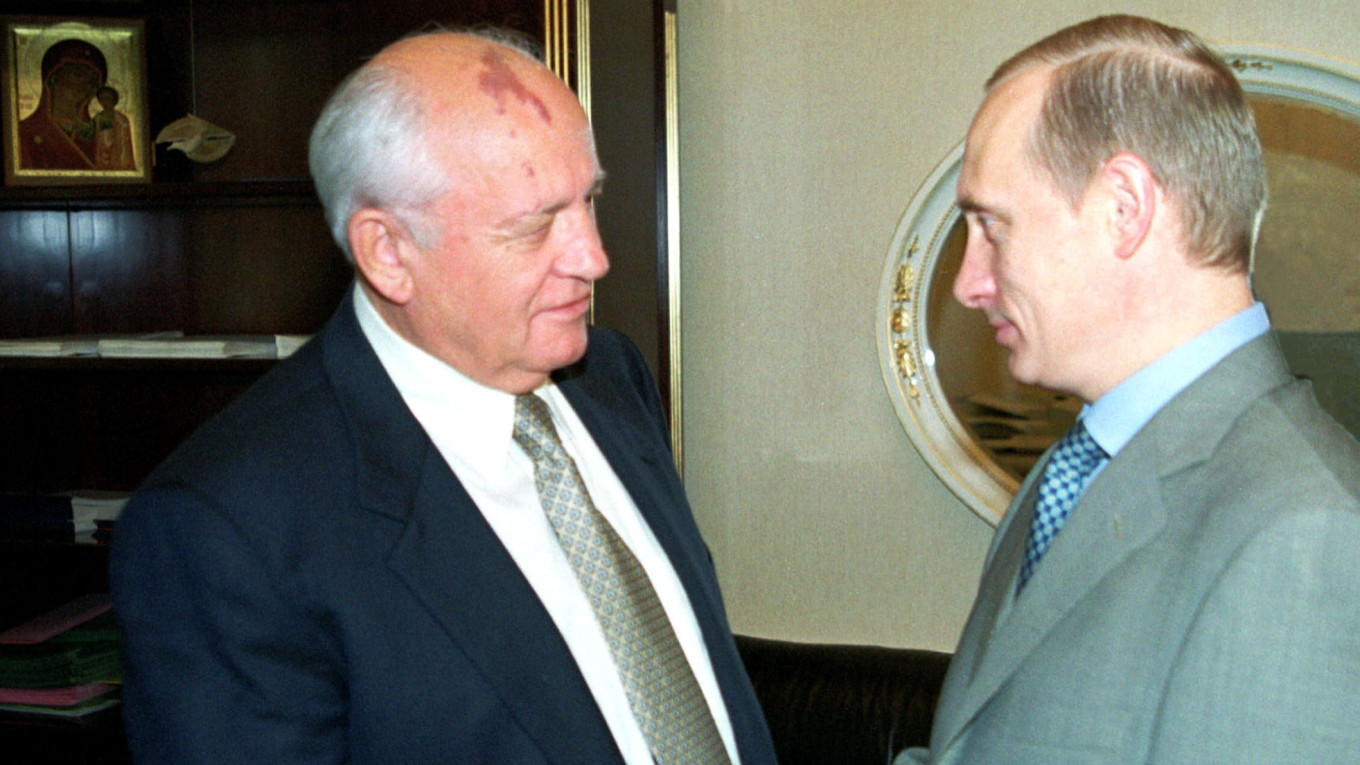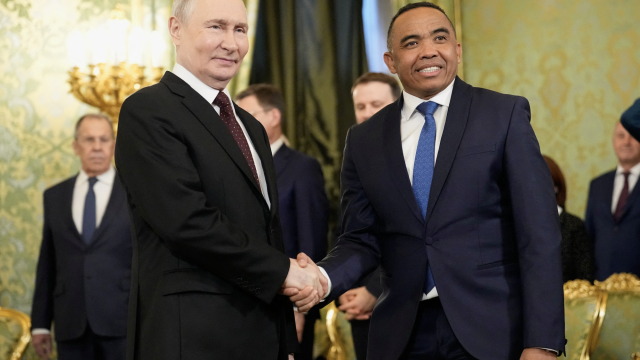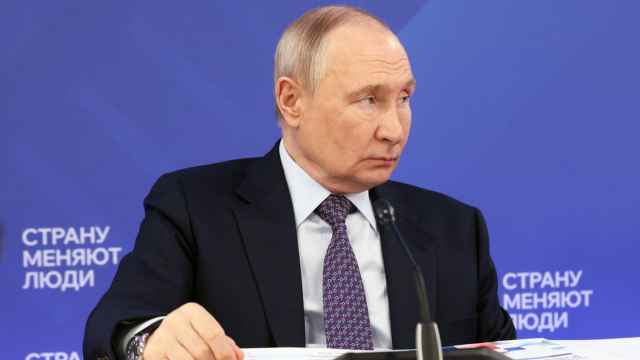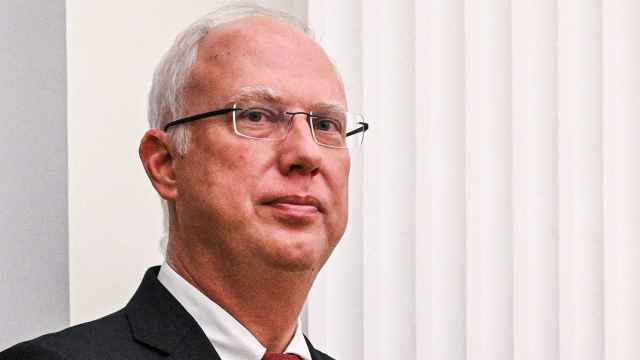Mikhail Gorbachev struggled to make up his mind about Vladimir Putin.
Over the more than 20 years after Putin came to power, the ex-Soviet leader embraced, then rejected, then embraced again the man who, much like Gorbachev in the 1980s, came to embody Russia in the eyes of the West.
A grudging respect seemed to have developed in the end, with Gorbachev saying ahead of Putin's 2018 re-election for a fourth term: "Today he is a leader who deservedly enjoys people's support."
After the chaos of the 1990s and the rule of his nemesis Boris Yeltsin, Gorbachev expressed hope for the former KGB agent who was first elected Russia's president in 2000.
Putin, he said at the time, was "intelligent, serious, reserved and well-organised. I like people of this kind."
For Gorbachev, Putin represented a chance for stability and economic growth, while continuing the transition to democracy he had set in place.
Even in 2006, as activists expressed increasing concern about the tough treatment of civil society under Putin, Gorbachev was able to declare that "those who fear Putin's authoritarian tendencies are wrong."
But as the years went by and hopes of democratic development in Russia evaporated, Gorbachev turned to veiled criticism and then to strongly worded attacks.
Fraud-tainted 2011 parliamentary elections hardened his attitude against the president, as well as Putin's decision to stand for an unprecedented third term in office.
Gorbachev backed a protest movement that followed the elections and in 2013 made a stinging attack on Russia under Putin.
"Politics is more and more turning into an imitation of democracy. All power is in the hands of the authorities and the president," Gorbachev said at the time.
"The economy is monopolised. Corruption has taken on colossal proportions."
Foreign media often latched on to his comments and he part-owned the proudly anti-Kremlin Novaya Gazeta newspaper, which suspended publication earlier this year after Russia launched its military action in Ukraine.
But at most Gorbachev was an irritating thorn in Putin's side.
The Kremlin shrugged off criticism from the man who allowed the collapse of the USSR, which Putin famously described as the biggest geopolitical tragedy of the 20th century.
When Gorbachev slammed Putin over the decision to return to the Kremlin for a third term, the Russian strongman spat back by accusing the former Soviet president of "abdicating" power.
By 2014, there were signs of another change of heart, with Gorbachev supporting Moscow's seizure of Crimea from Ukraine despite a Western outcry.
"Crimea is Russia and let someone prove the opposite," Gorbachev said.
The next year he backed Russia's launching of a military campaign in Syria to support President Bashar al-Assad's regime.
By the time Putin was running for a historic fourth term in 2018, Gorbachev was saying he was the kind of leader Russia needed in a "very complicated international situation".
The bitter irony was that in his twilight years Gorbachev supported a man who did not think much of him and who dismantled much of what the Soviet leader worked to achieve.
A Message from The Moscow Times:
Dear readers,
We are facing unprecedented challenges. Russia's Prosecutor General's Office has designated The Moscow Times as an "undesirable" organization, criminalizing our work and putting our staff at risk of prosecution. This follows our earlier unjust labeling as a "foreign agent."
These actions are direct attempts to silence independent journalism in Russia. The authorities claim our work "discredits the decisions of the Russian leadership." We see things differently: we strive to provide accurate, unbiased reporting on Russia.
We, the journalists of The Moscow Times, refuse to be silenced. But to continue our work, we need your help.
Your support, no matter how small, makes a world of difference. If you can, please support us monthly starting from just $2. It's quick to set up, and every contribution makes a significant impact.
By supporting The Moscow Times, you're defending open, independent journalism in the face of repression. Thank you for standing with us.
Remind me later.






